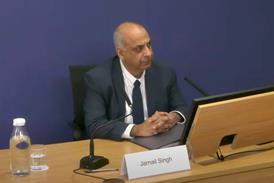An experienced solicitor who backdated a power of attorney document – claiming he wanted to help his elderly client – has been struck off the roll.
The Solicitors Disciplinary Tribunal ruled that wills specialist Robert Henry Foster knew he had consciously and deliberately created an invalid document, and judged that any altruism on his part was not sufficient to make dishonest conduct exceptional.
Foster, of North Yorkshire firm Foster Law, admitted preparing an enduring power of attorney for his client in 2010, but backdating it to November 2003 and witnessing signatures as if the document was completed then. Legislative changes between the dates would have invalidated an EPA executed after September 2007.
The solicitor of 41 years told the tribunal the admission was made with ‘profound regret and contrition’. He described his conduct as a one-off isolated incident and a ‘singular departure from habitual adherence to strict standards of integrity and ethical propriety’.
But the Solicitors Regulation Authority, prosecuting, submitted that Foster was an experienced solicitor who knew that the law had changed, was in control of the process, and took steps in witnessing the EPA to make it look more likely to have been executed in 2003.
Foster told the SRA that his client, who was not wealthy, had ‘winced’ when told of the registration fee relating to a proper lasting power of attorney, and he ‘went too far’ in trying to help her. He accepted that his conduct was a breach of regulations, but he explained he was being ‘too kind’ and ‘too helpful’. He now posed no continuing risk to the public, and he submitted the public would understand a ‘misguided attempt’ to assist his client. He asked in vain to serve out the rest of his career ‘in dignity’ and have time to find a replacement for clients who relied on him.
In deciding to strike him off, the tribunal said Foster’s conduct caused harm to the reputation of the profession and directly affected the client’s estate.
‘Altruism was not sufficient to make dishonest conduct exceptional,’ added the judgment. ‘This was not a course of action requested by his client, but was one suggested of his own volition with no explanation provided.’
The tribunal accepted that Foster was liked and respected by clients, who wanted him to continue to represent them, but this did not justify a lesser sanction. The SRA investigation started in 2016, which was felt long enough to have in place a successor.
Foster will also pay £7,942 in costs.






















20 Readers' comments